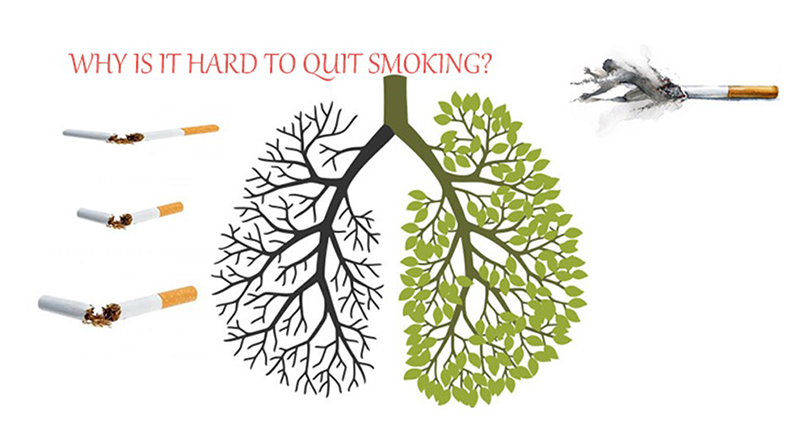
With over one billion people addicted to nicotine worldwide, surveys have shown that 80% of smokers would like to quit. Today, cigar users are well aware of the dire health consequences of smoking and the fact that it is responsible for the death of millions of people each year. Even so, only less than 5% are able to quit on their own – an indication that stopping smoking is a challenge. Below are some of the reasons why it is so:
Nicotine is highly addictive
Cigarettes comprise of nicotine - one of the most addictive drugs on earth. When taken in small amounts, nicotine is a stimulant, and in large doses, it is a relaxant. It fuels pleasure centers in the brain and can raise your mood and heart rate. However, these sensations are only temporary and you might experience unpleasant physical withdrawal symptoms shortly after smoking. Each person experiences withdrawal from addiction differently, in which case these are the symptoms:
- Flu-like aches and discomfort
- Irritability and anger
- Sleep problems
- Fatigue
- Concentration difficulties
- Anxiety and depression
- Headache
- Coughs and chest tightness
- Sore tongue and gums agitation
A 2013 survey by the University of Massachusetts Medical School found a group of neurons in the interpeduncular nucleus that triggers anxiety and stress during these withdrawal episodes. To overcome them, most people take another cigarette thus finding themselves in a vicious cycle of dependency.
The Psychological Dependence
Overcoming the psychosocial aspect of smoking can be as challenging as the physical addiction. With the stimulating and relaxing properties, nicotine affects several hormones including dopamine that influences your emotional state. Hence, you might deem it as a quick fix to stress and a way to cope with emotions. You can light up whenever you are bored, anxious, lonely, angry, or frustrated. The nicotine travels to the brain quickly when inhaled and generates a feeling of temporary relaxation and stress relief. It can also make you feel more content or happier. When you decide to quit smoking, you miss out this sensation, and this makes the process harder.
It is a Habit
Most smokers are actually addicted to the act of smoking and the rituals that make it up. Every time that you smoke, you condition and form a habit. The social and behavioral aspects of using a cigarette are usually very gratifying for the smoker. So, to quit smoking, you must work to overcome these habits and break the connection, which might be hard as it involves changing your regular routine.
The Throat Hit Effect
Smoking cigarettes create a feeling known as the throat hit. This is a type of sensation that you get at the rear part of your throat when you smoke. Once you begin the quitting process, your throat will feel an uncomfortable (sometimes irritating) -- a feeling that is usually cleared by a smoke.
It’s Hard to Avoid the Triggers
Smoking is usually linked to certain activities, people, and feelings. You associate closely some cues such as drinking coffee, alcohol, relaxing after meals, or talking on the phone. Once you make this link, your body and mind will program you to smoke each time you are in that situation. When you stop smoking, you will encounter these triggers in your daily life and in most cases, you will not have anticipated or developed ways of dealing with them.
Quitting Without an Alternative
It’s true that quitting smoking is hard, but the process is harder if the person doesn’t have an alternative to the cigar. Vaping or the use of vapor cigarettes has been found to be an excellent alternative that is more beneficial than any other non-smoking options. The best vapor cigarettes have e-liquid containing nicotine in different levels and flavoring. By mimicking the feel and look of a cigarette, the e-cigs have helped many people to quit smoking.
Conclusion
Despite the knowledge that nicotine affects the body, smoking is one of the most challenging habits to quit. But, comprehending why the proposition is hard can make it easier for you to take the necessary quitting measures. Ultimately, it’s up to you to do whatever it takes so as to enjoy all the benefits of a smoking-free life.